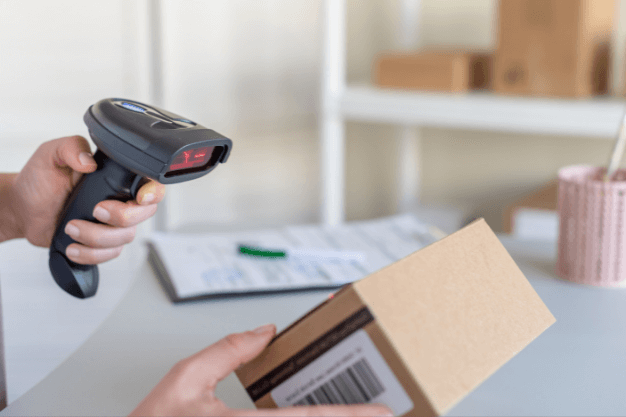SEO, or Search Engine Optimization, comes down to more than just keywords about your products and services. Location is a huge part of creating an SEO strategy. How can someone find your new cafe if Google does not know where you are located? If you are an e-commerce store, how will Google know you ship worldwide?
In a way, SEO is communicating with Google. It is telling Google, “Hey, we sell coffee in downtown New Orleans.” Now, Google knows to send people who search for coffee in New Orleans to your store. Similarly, it’s like telling Google, “We sell jewelry, and we ship it worldwide.” Now, Google knows they can send anyone in the world who is searching for jewelry to you.
This all comes down to knowing whether a local or national SEO strategy is best for you.
Similarities between Local & National SEO
Local and national SEO do have some similarities. They both use keywords to make your business place higher in Google’s search results. They both optimize your web content, blogs, and other copy. Their key difference is this: location. Does your business have a local location or national exposure? The answer to this question will help you decide which is the best choice for you.

Local SEO
Local SEO is telling Google you have a location people should go to. If you have a floral shop in Dallas, you may be using keywords surrounding weddings or proms to draw customers. But will someone find you when they ask Google to show them floral shops in Dallas?
This is the purpose of local SEO. You’ll need to optimize your keywords to focus on the name of the city your store is in. Or focus on the side of town you are in. Below are a few examples of searches a consumer might type into Google where a local SEO strategy should be used.
Local SEO Search Examples:
- Cafe near me
- Best mattress store in Albany
- Seafood restaurant in Miami
Local SEO is best for you if you have a brick-and-mortar location. You want Google to know where your gourmet chocolate cheesecake shop is located so they can share this with the person searching for cheesecake 2 miles away. In this case, having Google my business set up is a must. Other best practices for local SEO include adding your location to the copy of your website and every piece of content you post.

National SEO
By setting your website up for a national audience, you are telling Google that just targeting local traffic is not your focus, or you don’t have a brick-and-mortar location you want customers showing up to. For instance, if you sell custom LED T-Shirts out of a warehouse but it does not have a storefront for customers, Google can index your website to users across the nation or the entire world depending on how you choose to optimize your website.
This strategy is much different than local SEO. You are not reaching just people within 10 miles of your shop; you can reach anyone in the world searching for what you offer. That’s exciting, but remember you are also competing with every other business in the world offering similar services and products. Your strategy will be to find ways to stand out. Below are some examples of searches where a national SEO strategy should be used.
National SEO Search Examples:
- Affordable prom dresses
- Alpaca wool blankets
- Shirt stays for men
National SEO is best for you if you sell products or services that are either completely online or can be shipped to consumers. You want Google to know your homemade jewelry can be shipped around the world. National SEO strategies often have more moving parts than local SEO since you have more competition and are not restricted by location.
If you’re using national SEO, you need to know who you are and who your target audience is. Utilize long-tail keywords and create valuable content to come out above the competition.

What Strategy is Best for You?
Now that you have seen an overview of both, how do you know which SEO strategy is for you? It is important to ask yourself questions about location. Do you have a physical location you want people to come shop? Or, can anyone in the country or world buy from you online?
Choose a local SEO strategy if…
- You have a brick-and-mortar store.
- You have multiple physical locations (you will need to optimize each location).
- People shop with you in person at your store.
Choose a national SEO strategy if…
- You sell digital services or products.
- You do not have a physical location people can shop.
- You are an e-commerce store.

Implementing Your SEO Strategy
A successful SEO strategy takes time. You won’t see results the morning after you update your website’s keywords. Remember, Google is an algorithm, and algorithms take time to update, learn and adapt.
This makes getting your strategy right the first time even more important. You don’t want to get a few months down the road only to realize you chose the wrong strategy. You’ll have to spend time and money to adjust again and spend more time waiting for the results.
Once you know which strategy is right for you, stick with it. You need to tell Google where you are located or that you lack a location. Whatever content you’re creating also needs to have these locational keywords included.
Get Help with Your SEO Strategy
Showing up in searches is more than just your product keywords. It is about location. Your local or national SEO strategy communicates your location with Google. Stand out to local customers by letting Google know you are right around the corner or expand your reach by telling Google you can ship to that person across the country who is shopping online right now.
Want to know more about how SEO services can help your business generate more leads? Schedule a strategy session with us today!

